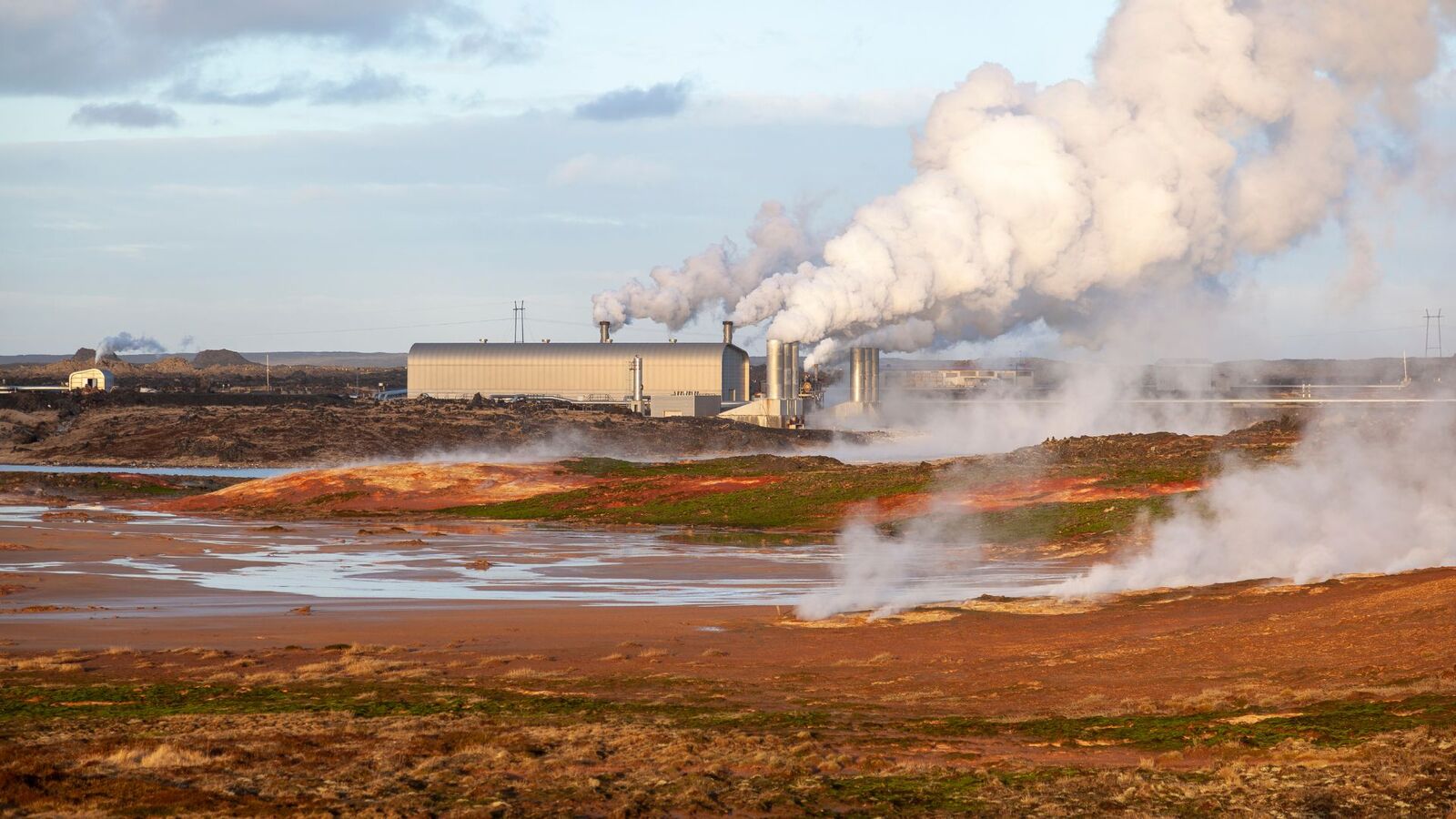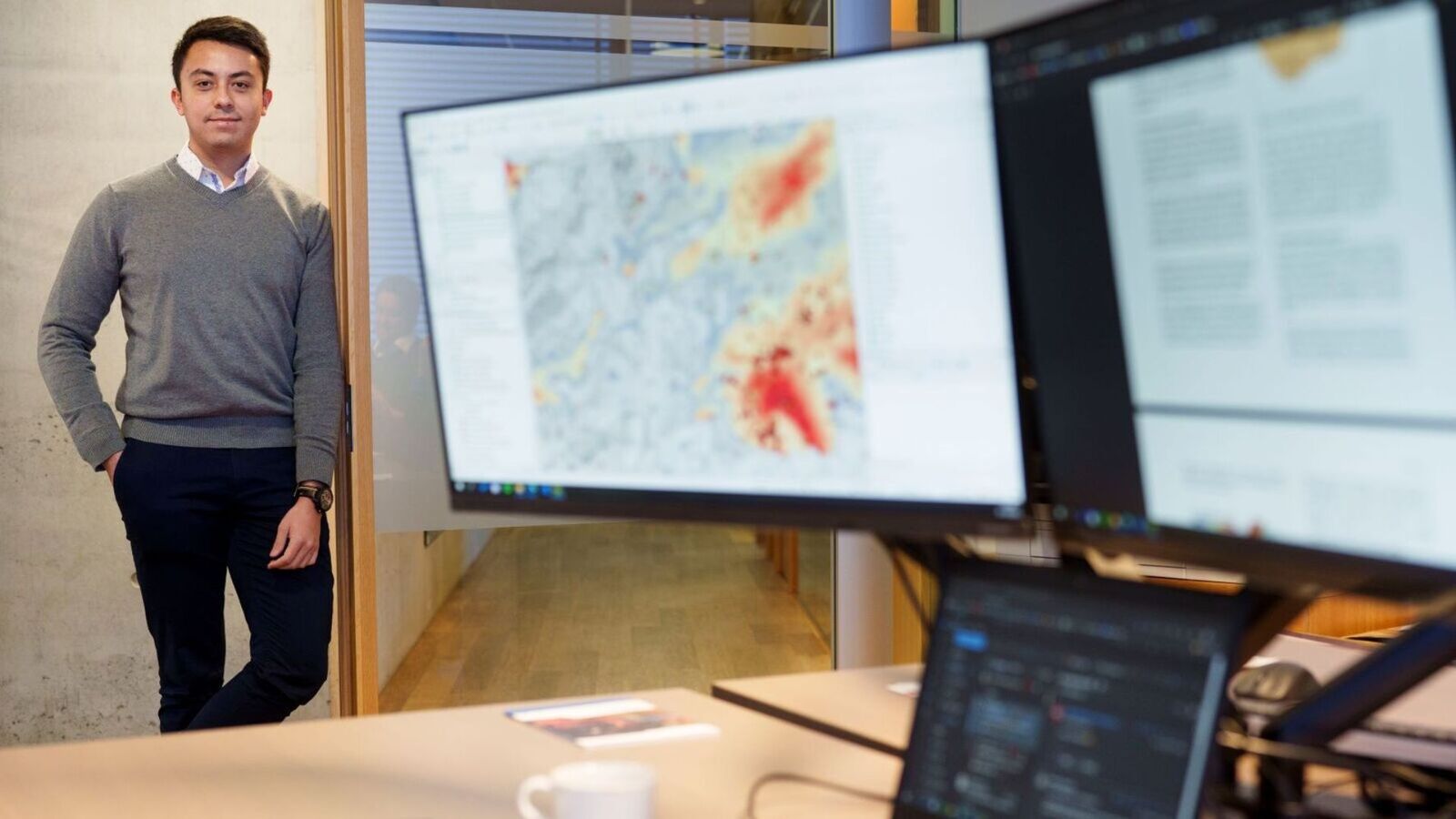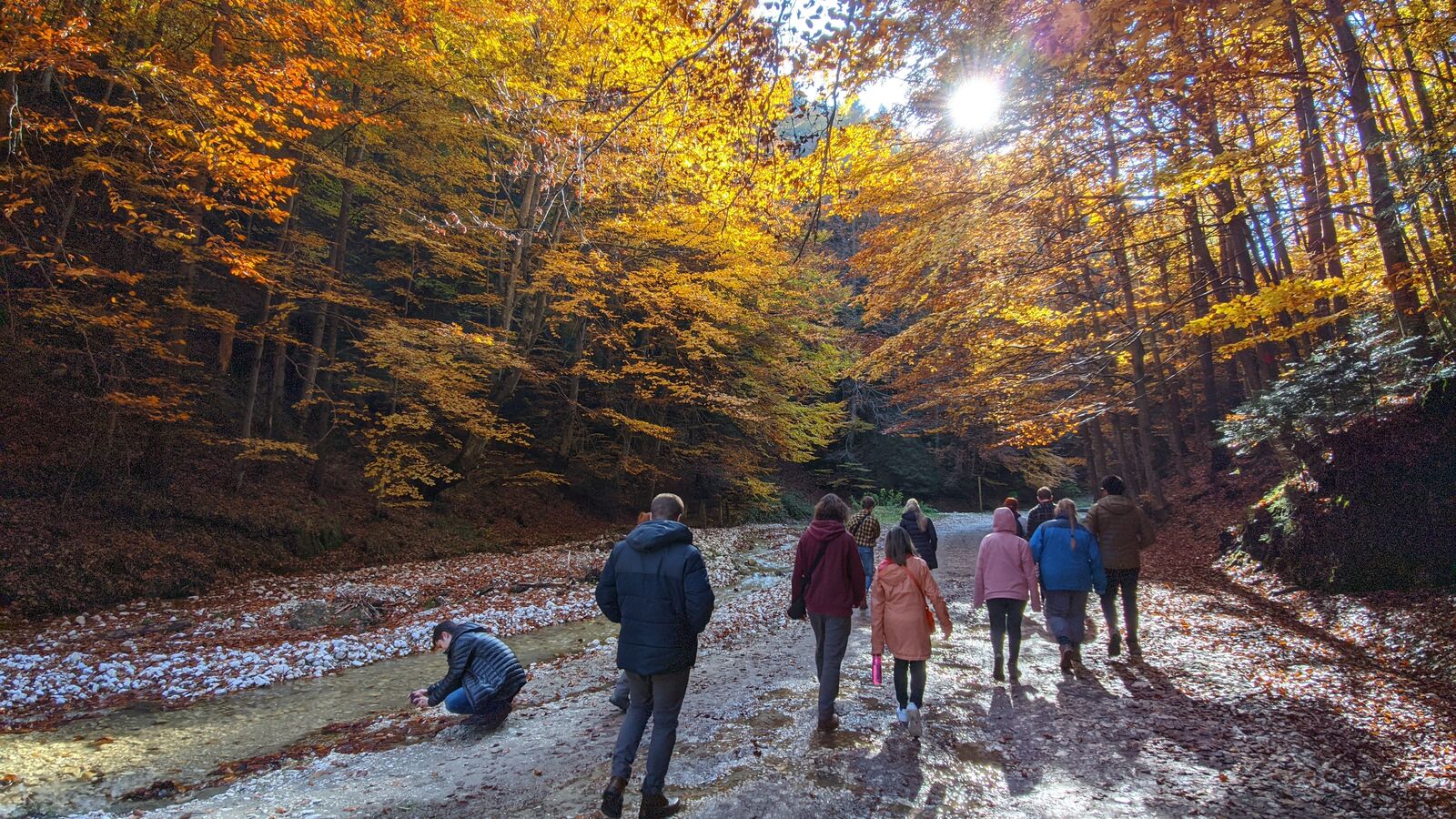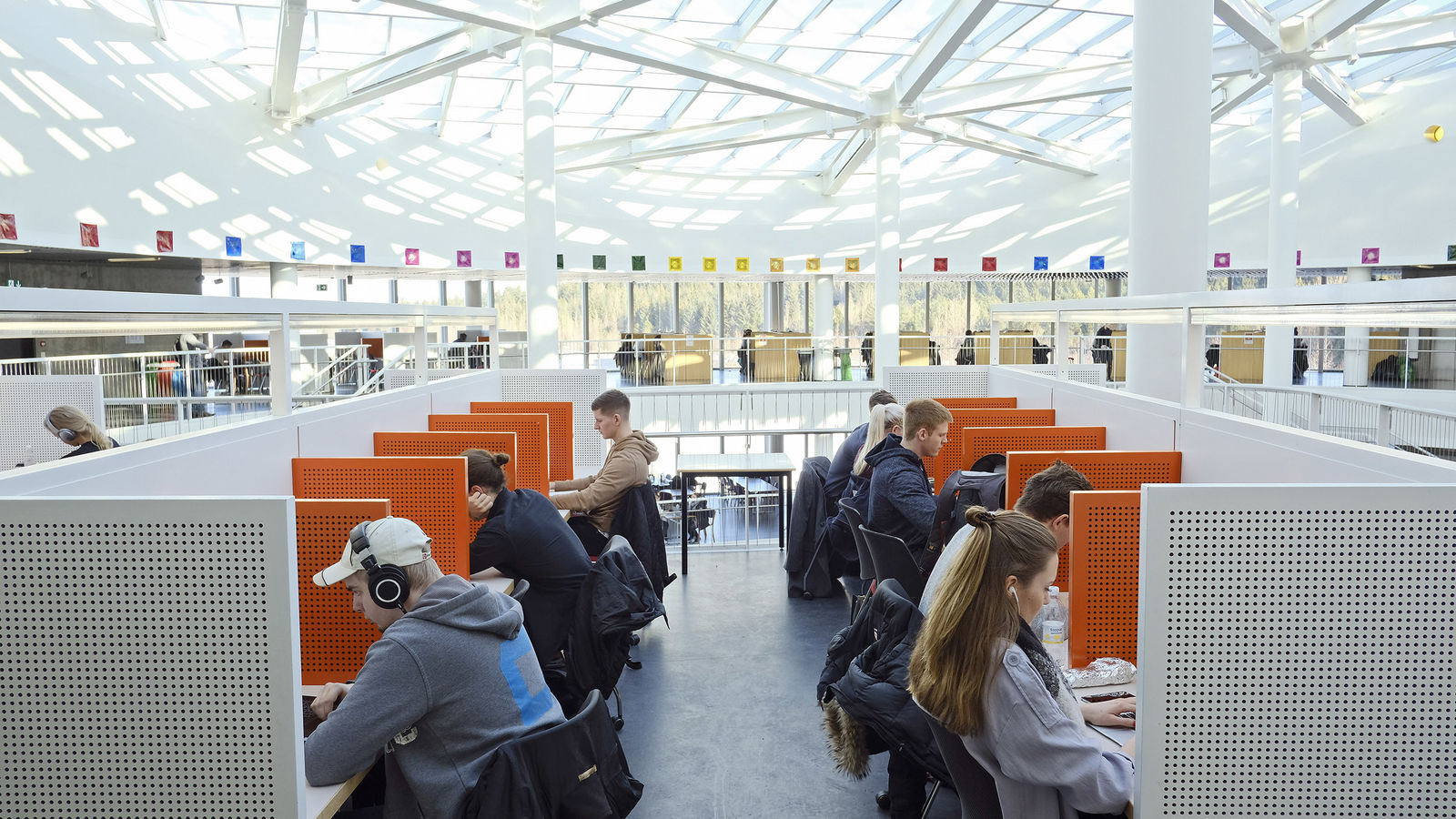MSc Sustainable Energy Engineering
This program offers a comprehensive insight into sustainable energy engineering, integrating aspects of technology, business, and law. It focuses on the core principles and provides students with practical analytical tools and advanced methods, ensuring a balanced expertise in the field. Through this holistic approach, students are prepared to address the multifaceted challenges of the energy sector effectively.
Overview

Language: English
Duration: 24 months of continuous study.
Format: Full-time, on-campus.
Start: Late July
Sustainable energy engineering stands at the forefront of the global transition towards a resilient and environmentally-conscious future. As the field rapidly evolves, new challenges emerge daily, demanding innovative solutions and fresh perspectives. It profoundly influences our perceptions of energy, from tapping the geothermal energy deep beneath Iceland's crust to capturing winds that sweep across the world. Beyond its commitment to a cleaner environment, this discipline is in a constant state of adaptation, pioneering solutions to the ever-changing energy landscape. Through this degree, we aim to equip the next generation of engineers with the knowledge and skills to address these challenges head-on, ensuring a clean future with robust energy security and a thriving economy.
Pathways to Specialization:
- Geothermal Engineering: Delve into geothermal energy's technical aspects. This pathway covers energy economics, geology, sustainability, and data-driven approaches in geothermal. Graduates are poised for roles in geothermal reservoir engineering, geoscience, and consultancy.
- Energy Industry: Dive into the energy sector's technical, economic, and sustainable facets. This pathway emphasizes energy economics, sustainability, and data-driven industrial processes, with a focus on wind energy, hydro power management, and energy industrial processes. Graduates are primed for roles as an engineer in multiple fields connected to energy projects.
- Engineering Management: Master the art of managing engineering projects within the energy sector. While sharing similarities with the Energy Industry track, this pathway uniquely integrates project management and financial courses into its curriculum. It lays a foundation in engineering principles, economics, and sustainability. Ideal for those eyeing future work in project management, graduates are well-suited for roles as project managers, consultants, and energy analysts.
While these pathways provide a structured approach, they are by no means restrictive. We encourage our students to traverse between them, ensuring a holistic understanding and fostering interdisciplinary exploration.
Collaboration – Inside Access
In collaboration with our partners, including global leaders in renewable energy like Reykjavik Energy and Iceland Geosurvey, students are offered unparalleled insights into the entire sustainable energy spectrum. From witnessing the power of geothermal power plants to understanding the intricacies of sustainable energy laws, the journey is comprehensive and enlightening.
Student Body and Faculty
The Sustainable Energy Science program attracts a diverse cohort of students, with backgrounds spanning from business and engineering to social sciences and natural sciences. While students from disciplines such as Business, Engineering, Economics, Geology, and Geography often find the curriculum especially enriching, our doors are open to passionate learners from all academic realms. This rich tapestry of backgrounds fosters a unique interdisciplinary environment, enriched further by our faculty— a blend of seasoned academics and industry professionals. Together, they ensure a holistic and practical understanding of sustainable energy challenges.
The program aims to equip students with the ability to apply sustainable energy concepts and quantitative methods to real-world challenges. Students will gain insights into the significance of a holistic approach, understanding the interplay between technology, economics, and policy-making. Moreover, with the looming challenge of climate change, the principles and tools of sustainable energy are indispensable in crafting global solutions.
Join us in this journey as we explore the vast discipline of sustainable energy, delve into its complexities, and emerge with knowledge and skills that not only promise a sustainable future but also pave the way for innovative solutions in the field of energy.
Program Structure

Duration and Format
- Duration: 24 months of continuous study.
- Format: Full-time, on-campus.
- Credits: 120 ECTS
Pathways to Specialization:
- Geothermal Engineering: Delve into geothermal energy's technical aspects. This pathway covers energy economics, geology, sustainability, and data-driven approaches in geothermal. Graduates are poised for roles in geothermal reservoir engineering, geoscience, and consultancy.
- Energy Industry: Dive into the energy sector's technical, economic, and sustainable facets. This pathway emphasizes energy economics, sustainability, and data-driven industrial processes, with a focus on wind energy, hydro power management, and energy industrial processes. Graduates are primed for roles as an engineer in multiple fields connected to energy projects.
- Engineering Management: Master the art of managing engineering projects within the energy sector. While sharing similarities with the Energy Industry track, this pathway uniquely integrates project management and financial courses into its curriculum. It lays a foundation in engineering principles, economics, and sustainability. Ideal for those eyeing future work in project management, graduates are well-suited for roles as project managers, consultants, and energy analysts.
While these pathways provide a structured approach, they are by no means restrictive. We encourage our students to traverse between them, ensuring a holistic understanding and fostering interdisciplinary exploration.
Core Courses:
- Energy Economics (6 ECTS): This foundational course, integral to our energy policy and economics pathway, delves into the nuances of energy demand and supply, pricing mechanisms, environmental implications, and the ever-changing world of public policies. Through hands-on exercises, in-depth analyses, and expert-led discussions, gain insights into global oil and gas markets, power sector monopolies, and sustainable energy solutions. Energy Economics is designed to empower students with the knowledge to navigate the complexities of the energy sector.
- Energy in Industrial Processes (8 ECTS): Explore the core of energy-intensive production, from foundational theories like mass and energy balance to key industrial processes, emphasizing Aluminum and Silicon production relevant to Iceland. Delve into the potential of electrical energy as a fossil fuel alternative, especially through methods like hydrogen electrolysis.
- Data Mining and Machine Learning (8 ECTS): This course provides a comprehensive exploration of pattern recognition, classifier design, and statistical pattern recognition, encompassing topics from Bayesian decision theory to neural networks and advanced techniques. Through hands-on experience with tools like Python, students will apply these concepts to diverse challenges. While the curriculum is broad, the acquired skills find practical applications in the energy sector. These skills are particularly valuable for tasks such as energy data analysis, system optimization, trend forecasting, and identifying patterns for informed decision-making within the dynamic energy landscape.
Teaching and Learning
Our curriculum is a blend of traditional lectures, seminars, and field visits, ensuring a comprehensive understanding of the subject matter here at Reykjavik University. What truly sets us apart is our faculty, comprising both accomplished academics and industry experts, bringing a wealth of knowledge and real-world insights to the classroom.
Personal Study Plan
Addressing energy challenges requires a collective effort, drawing insights and expertise from every corner of academia and industry. At the Iceland School of Energy, we believe in the power of diverse backgrounds coming together to forge innovative solutions. We collaborate across the university and various disciplines, tailoring study plans to ensure every student remains engaged, inspired, and constantly challenged.
Sample Schedule - Geothermal
| Summer | Fall | Spring | |
|---|---|---|---|
| Year 1 | 6 ECTS
| 31 ECTS 12 Weeks
| 33 ECTS 12 Weeks
|
| Year 2 | 20.5 ECTS
| 30 ECTS
|
Sample Schedule - Energy Industry
| Summer | Fall | Spring | |
|---|---|---|---|
| Year 1 | 6 ECTS
| 31 ECTS 12 Weeks
3 Weeks
| 30 ECTS 12 Weeks
3 Weeks
|
| Year 2 | 30 ECTS
| 30 ECTS
|
Sample Schedule - Engineering Management
| Summer | Fall | Spring | |
|---|---|---|---|
| Year 1 | 6 ECTS
| 36 ECTS 12 Weeks
3 Weeks
| 30 ECTS 12 Weeks
3 Weeks
|
| Year 2 | 30 ECTS
| 30 ECTS
|
Core Courses and Electives
Energy Field School
This three-week course provides a comprehensive introduction to sustainable technology. Through a combination of lectures and site visits, students gain insights into the factors driving the demand for sustainable energy and the practicalities of implementing these technologies. With guidance from our experienced faculty, you'll have the opportunity to see sustainable energy systems in action and understand their real-world applications.
Energy Economics
Over 12 weeks, students delve into the specifics of energy economics. The course covers a range of theoretical and empirical topics, equipping students with the skills to analyze energy systems, evaluate energy projects, and develop solutions to practical problems.
Energy Geology
This course offers insights into the geoscience principles that underpin the energy sector. Topics covered include geology basics, the relationship between rocks and energy, structural geology fundamentals, and geomechanics. Practical sessions focus on interpreting geological maps, creating geological cross-sections, and understanding the dynamics within geological energy systems.
Energy Markets and Regulations
This course, in collaboration with Cornell University, provides an overview of energy markets and regulations. It focuses on the industries in North America, especially the United States and Canada, with an emphasis on electricity pricing and market oversight. The course also touches upon the role of liquid and gas fuel markets.
Environmental Impact Assessment
In this three-week course, students learn about the Environmental Impact Assessment (EIA) process. They'll understand how to gauge the environmental effects of proposed developments and have the chance to craft their own EIA on a chosen topic.
Datamining and Machine Learning
Apply the data mining methods and implement the machine learning algorithms presented in the course using standard programming languages such as Python or Matlab and software packages, design a suitable machine learning algorithm for a real world problem, evaluate its performance, compare different designs and implementations and interpret the results, and present findings and new results in the subject.
Geothermal Conceptual Modeling
This course introduces students to geological modeling and geothermal conceptual designs. It emphasizes hands-on learning, where students will work with the Leapfrog Geothermal software and delve into the conceptual modeling processes. The course concludes with students developing natural state models using both simulated and real field data.
International Energy Law
Gain a clear understanding of the legal and institutional frameworks in the field of international and European energy law. This course covers the primary legal principles, policy matters, and legal issues related to energy and sustainable development. It also offers insights into the Icelandic energy market and the relationship between national and international energy laws.
Optimization Methods
Explore optimization and optimal control in this course. Learn key algorithms for linear, network, discrete, nonlinear, and dynamic optimization. Emphasis on methodology and mathematical structures. Topics include simplex method, network flow, cutting plane methods, convex optimization, dynamic programming, and more.
Power Plant Design
Get a comprehensive understanding of power project design, construction, and operations. This course covers geothermal plant cycles, equipment, and operations. Students will learn to structure feasibility studies, design piping and pumping stations, understand major design point selection processes, and develop major conceptual drawings.
Research Methods
This course emphasizes the importance of robust research skills. Students will be guided through literature surveys, scientific writing techniques, and research project management, ensuring they're well-prepared for academic endeavors in subsequent courses.
>> More information on all available courses can be obtained from the course overview page.
Study Abroad & Exchange

Students from the Iceland School of Energy during their exchange program at the University of Bucharest, exploring the Romanian mountains, the source of water channels for hydropower generation.
At the Iceland School of Energy, we believe in the power of global perspectives. That's why we've established partnerships with renowned universities across Europe and beyond, enabling our students to embark on programs ranging from a few days to a semester or two.
Typically, students opt for these exchange opportunities in their second year or later. This timing allows them to align their overseas studies with their thesis research, delving deeper into specialized topics and benefiting from the expertise available at our partner institutions.
For many of our students, who hail from various corners of the world, these program offers an enriching chance to diversify their academic journey. Our partner institutions are spread across countries including Austria, France, Germany, Italy, Slovenia, the Netherlands, Romania, Colombia, Mexico, and Indonesia, offering a myriad of learning environments and cultural experiences.
Benefits of our exchange programs include:
- Gaining a broader understanding of the global energy landscape.
- Immersing in diverse teaching methodologies and cultural nuances.
- Collaborative opportunities, such as co-authoring thesis topics with faculty from partner universities.
- Specializing further in specific areas of interest, enhancing employability and industry readiness.
- In essence, our exchange programs are more than just academic adventures; they're pathways to global understanding, fostering well-rounded professionals ready to make impactful contributions in the energy sector.
Admission
Admission Requirements
The Sustainable Energy Engineering program is open to students with an undergraduate degree in relevant fields of study. Our students typically come from engineering, physics, mathematics, and environmental sciences backgrounds.
Beneficial Undergraduate Degrees
Having an undergraduate degree in one of the following disciplines will be beneficial:
- Mechanical Engineering
- Electrical Engineering
- Environmental Engineering
- Civil Engineering
- Chemical Engineering
- Industrial Engineering
- Aerospace Engineering
- Computer Engineering
- Materials Science and Engineering
- Nuclear Engineering
For further details regarding admission requirements and the application process, please visit our Admissions page for the Iceland School of Energy at: Admissions Page
Recommend GPA
The recommended grade point average (GPA) for admission is 8 out of 10 on the Icelandic selected grade point scale, which is equivalent to a GPA of 3.25 out of 4 on the U.S. scale.
Chartered Engineer
To graduate with a master's degree in engineering and become a chartered engineer in Iceland, students must fulfill requirements set forth by the Ministry of Industries and Innovation. See here for more information.
Contact us
Have a question about the degree?
You can reach out to us any day by simply sending us an email at ise@ru.is.
| Photo | Name | Title | Contact | Description |
|---|---|---|---|---|
 | Jacob Kaminski | Program Administrator | ise@ru.is | Prospective students may reach out for questions regarding any of our graduate programmes. |
Freyja Ingadóttir | International Admissions Officer | admissions@ru.is | Contact for general questions regarding the application process, visa-related issues and inquires. |

